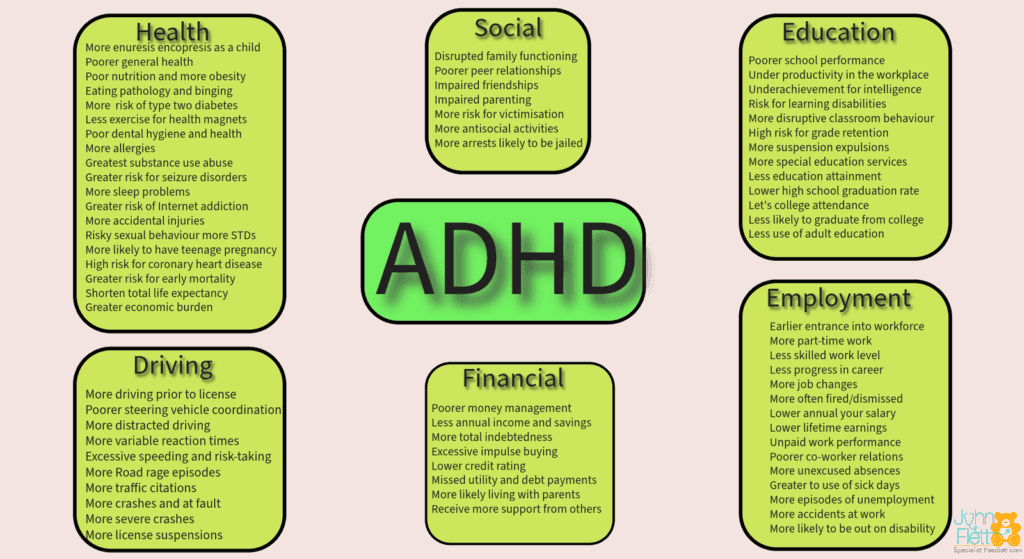Why It’s Crucial to Treat ADHD The Hidden Consequences of Ignoring the Disorder

Attention Deficit Hyperactivity Disorder (ADHD) is a subject frequently discussed yet commonly misunderstood. Many folks might mistakenly regard ADHD as a mere academic concern, a nuisance that bothers teachers, or a byproduct of today’s digital era. Parents and other family members often brush it off as an overdiagnosis, a trend, or a result of putting too much pressure on our kids. But the reality is that ADHD is a genuine, biological condition with physical, neurological, and chemical components.
Let’s set the record straight: ADHD is not just a “school problem.” Treating ADHD is essential not just for academic success but for overall well-being, risk reduction, and promoting a healthier life. Ignoring this condition can lead to a multitude of potential risks and impairments, which can be significantly reduced or avoided with early intervention. Here’s why it’s so critical to treat ADHD:
Social Consequences of Untreated ADHD
When we ignore ADHD, it can create considerable disruptions to social interactions and relationships. Here are some of the possible outcomes:
- Strained family dynamics and impaired parenting
- Troubled friendships and poor peer relationships
- Increased risk of victimisation and engagement in antisocial activities
- Higher chance of incarceration
Educational and Career Impact of ADHD
The repercussions of ADHD extend to education and employment, too. Not addressing ADHD can lead to:
- Lower academic performance and high risk of grade retention
- Higher rates of disruptive classroom behaviour and suspensions
- Increased likelihood of requiring special education services
- Reduced rates of high school graduation and college attendance
- More frequent job changes and dismissals
- Difficulty progressing in career and lower lifetime earnings
Financial Struggles Linked to ADHD
Untreated ADHD can also lead to a multitude of financial challenges:
- Poor money management skills and lower credit ratings
- More impulsive buying and higher debt
- Higher chance of living with parents or needing support from others
Impact on Driving and Health
Finally, ignoring ADHD can contribute to risky driving habits and numerous health problems:
- Distracted driving and excessive risk-taking
- More traffic citations and at-fault accidents
- Poor nutrition, obesity, and increased risk of type 2 diabetes
- Higher likelihood of substance abuse and internet addiction
- Risky sexual behaviour and higher chances of teen pregnancy
- Greater risk for early mortality and shortened life expectancy
In conclusion, ADHD isn’t a disorder that should be dismissed or downplayed. The belief that it’s only a school problem, or that a bit of medication is the ‘one-fix-all’ solution, is a misconception. Rather, it requires a holistic approach, involving appropriate treatment strategies that encompass medication, therapy, and lifestyle changes.
The good news is, ADHD is treatable. Properly managing this condition can help children and adults alike lead fulfilling, productive lives. Let’s ensure we tackle ADHD head-on and with the importance it deserves, for the betterment of individuals and our society as a whole.

